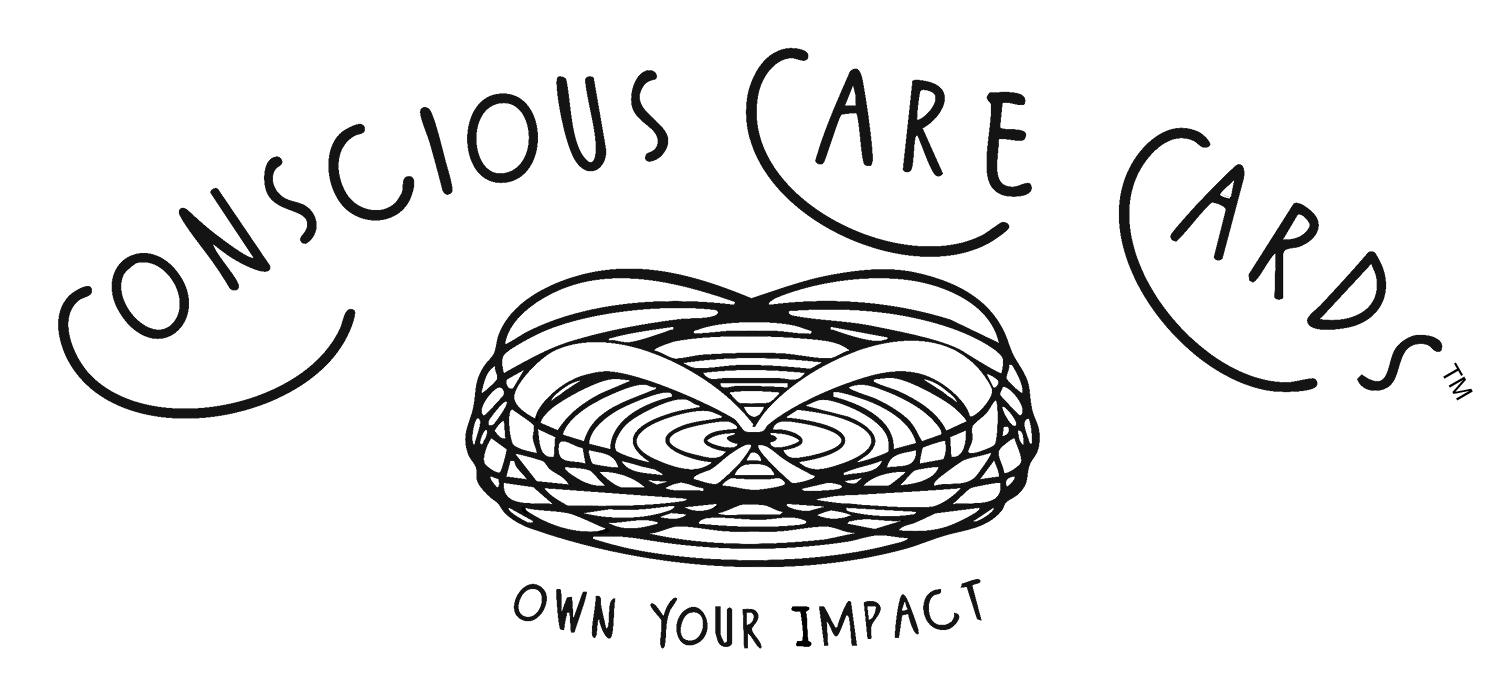
Benefits & Prevention
Conscious Care Cards are designed to foster positive interactions and promote mindfulness in daily communication. Explore the numerous benefits that Conscious Care Cards can offer, the behaviors they help to mitigate, and the studies that support their impactful use in cultivating healthier connections.
Fosters Secure Attachment
Attachment Theory (Bowlby, 1969): Secure attachment forms when caregivers are consistently responsive and attuned to a child’s needs. Conscious Care Cards encourage mindful, intentional interactions that help build trust and emotional security.
Benefits of Secure Attachment:
Greater emotional resilience.
Stronger self-esteem and social competence.
Reduced anxiety and behavioral issues in childhood and later in life.
Parental Well-being: Promotes self-awareness and emotional regulation in caregivers, which are critical for creating a secure attachment environment.
Enhances Emotional Regulation
Polyvagal Theory (Porges, 1994): Activities like deep breathing and creating rituals help activate the vagus nerve, encouraging calm and reducing stress for both parent and child.
Emotion Coaching (Gottman, 1997): The cards teach parents to validate and guide their children through emotional experiences, helping children learn to self-soothe and manage big emotions.
Benefits for Children:
Improved ability to handle stress and frustration.
Greater impulse control and problem-solving skills.
Builds Cognitive Flexibility
Growth Mindset (Dweck, 2006): Activities that normalize making mistakes and learning from challenges encourage resilience and a flexible, adaptive approach to problem-solving.
Cognitive Development: Guided problem-solving activities improve executive function, including memory, attention, and planning skills (Diamond, 2013).
Strengthens Parent-Child Connection
Mindful Parenting Practices: Shared activities promote intentional, undistracted time together, reinforcing the bond between caregiver and child.
Oxytocin Release: Physical touch, eye contact, and cooperative play encourage the release of oxytocin, the “bonding hormone,” which enhances feelings of trust and safety.
Reduces Parental Stress
Emotional Contagion: When parents engage in calming and mindful practices, their emotional state positively influences their child’s.
Self-Care for Caregivers: By including activities that prioritize the caregiver's well-being, the cards reduce stress and prevent burnout, enabling parents to be more present and responsive.
Supports Healthy Neural Development
Serve and Return Interactions (Harvard Center on the Developing Child): Back-and-forth exchanges during activities stimulate neural pathways, supporting healthy brain development in early childhood.
Language and Social Skills Development: Conversational prompts and shared reflections strengthen language acquisition and enhance empathy, perspective-taking, and relationship-building.
Promotes Emotional Intelligence
Emotion Identification and Expression: Activities that explore feelings help children label emotions, improving emotional literacy (Goleman, 1995).
Empathy Development: Reflecting on emotions in oneself and others fosters empathy and compassion.
Encourages Pro-Social Behavior
Kindness and Gratitude Practices: Science shows that practicing kindness and gratitude enhances happiness and strengthens relationships (Emmons & McCullough, 2003).
Conflict Resolution Skills: Role-playing and communication activities teach children how to navigate disagreements constructively.
Prepares Children for Independence
Secure Base Concept (Ainsworth, 1978): A strong attachment allows children to explore the world with confidence, knowing they have a safe place to return.
Self-Efficacy (Bandura, 1997): Engaging in structured, success-oriented activities helps children build a sense of competence and autonomy.
Promotes Family Harmony
Ritual Creation: Regular use of the cards fosters family traditions, which research shows contribute to a sense of stability and connection (Fiese et al., 2002).
Conflict Prevention: Skills learned through the cards help reduce family tension and improve communication, promoting a more peaceful household.
By integrating attachment theory, neuroscience, and mindfulness practices, Conscious Care Cards empower caregivers to strengthen their child's emotional well-being while fostering their own resilience and sense of purpose.
Preventable Behaviors
Continue to scroll for an outline of the maladaptive behaviors that the activities in the Conscious Care Cards can help prevent, based on developmental psychology, neuroscience, and behavioral science.
Reduces Risk of Anxiety Disorders
Prevention: By teaching emotional regulation, self-awareness, and mindfulness, these activities reduce tendencies toward chronic worry, overthinking, and heightened stress responses.
Behavior Prevention:
Avoidance of challenges or social situations.
Excessive fear of failure or perfectionism.
Over-reliance on unhealthy coping mechanisms like substance use or isolation.
Decreases Aggressive or Violent Behavior
Prevention: Encouraging empathy, emotional literacy, and communication skills fosters pro-social behavior and reduces impulsivity.
Behavior Prevention:
Bullying or aggressive outbursts.
Physical or verbal altercations.
Domestic violence or abusive tendencies in adult relationships.
Prevention: By enhancing self-regulation and decision-making skills, the activities curb impulsivity and encourage thoughtful action.
Behavior Prevention:
Reckless driving or substance abuse.
Unplanned pregnancies or unsafe sexual practices.
Financial irresponsibility or impulsive spending.
Prevents Risk-Taking and Impulsive Behavior
Reduces Avoidant or Passive Behaviors
Prevention: Activities that build self-efficacy and confidence reduce avoidance of responsibilities or challenges.
Behavior Prevention:
Chronic procrastination or fear of commitment.
Difficulty asserting boundaries or advocating for oneself.
Learned helplessness and avoidance of opportunities for growth.
Mitigates Development of Eating Disorders
Prevention: By fostering a positive sense of self and emotional resilience, the cards help children develop a healthy relationship with their bodies and emotions.
Behavior Prevention:
Obsessive dieting or binge eating.
Negative body image and self-criticism.
Use of food as a coping mechanism for stress.
Prevents Social Withdrawal and Isolation
Prevention: Strengthening attachment, empathy, and communication skills helps children build and maintain healthy relationships.
Behavior Prevention:
Avoidance of social connections or inability to trust others.
Loneliness or refusal to seek help when needed.
Difficulty forming meaningful friendships or romantic relationships.
Reduces Substance Abuse Risks
Prevention: By teaching healthy coping strategies, self-regulation, and stress management, these activities reduce the likelihood of turning to substances for relief.
Behavior Prevention:
Dependence on alcohol, drugs, or nicotine.
Use of substances to mask emotional pain or trauma.
Limits Development of Narcissistic or Manipulative Behaviors
Prevention: Activities emphasizing kindness, gratitude, and mutual respect reduce tendencies toward entitlement or exploitative behaviors.
Behavior Prevention:
Excessive self-centeredness or inability to empathize with others.
Manipulation or exploitation in relationships.
Inflated or fragile sense of self-esteem.
Protects Against Depressive Symptom
Prevention: Encouraging emotional expression, resilience, and gratitude helps mitigate risks of depression.
Behavior Prevention:
Chronic feelings of hopelessness or worthlessness.
Social withdrawal and lack of motivation.
Difficulty finding joy or meaning in life.
Reduces the Risk of Codependent Relationships
Prevention: By reinforcing boundaries and self-worth, these activities help children avoid enmeshment or over-dependence on others for validation.
Behavior Prevention:
Difficulty maintaining autonomy in relationships.
Over-giving or neglecting one’s own needs.
Staying in unhealthy or abusive relationships.
Prevents Cognitive Rigidity and
Black-and-White Thinking
Prevention: Promoting cognitive flexibility helps children embrace complexity and avoid polarized thinking.
Behavior Prevention:
Difficulty adapting to change.
Over-generalization or inability to see multiple perspectives.
Rigid moral absolutism or judgmental behavior.
Mitigates Chronic Stress and Health Issues
Prevention: By teaching vagus nerve stimulation, mindfulness, and stress reduction, the cards promote lifelong physical and mental health.
Behavior Prevention:
Over-working or burnout.
Stress-related physical ailments like hypertension or digestive issues.
Poor self-care habits, including sleep deprivation or unhealthy eating.
Reduces Risk of Oppositional Defiant Disorder (ODD)
Prevention: By teaching empathy, self-regulation, and respect for boundaries, the activities lower defiant and oppositional tendencies.
Behavior Prevention:
Persistent arguing with authority figures.
Refusal to follow rules or defiance of social norms.
Chronic irritability and resentment.
Limits Future Relationship Dysfunction
Prevention: By modeling healthy communication and consent, these activities set the stage for respectful and fulfilling relationships.
Behavior Prevention:
Controlling or overly dependent behaviors.
Difficulty resolving conflicts constructively.
Patterns of abandonment or mistrust.
Prevents Trauma-Related Maladaptations
Prevention: Trauma-informed practices like the Rosenberg Vagus Nerve Technique and emotional safety exercises help children process and recover from stress or trauma.
Behavior Prevention:
Hyper-vigilance or excessive fear.
Emotional numbness or dissociation.
Maladaptive coping mechanisms, such as aggression or avoidance.
By proactively fostering secure attachment, emotional regulation, self-awareness, and resilience, Conscious Care Cards help prevent many maladaptive behaviors, equipping children with the tools to thrive emotionally, socially, and mentally throughout life.
Click here to read more about the benefits of Conscious Care Cards.
What They’re Saying
What They’re Saying




